Bizhan Taraqqi
Bizhan Taraqqi, (1929-2010), a poet and lyricist hailing from Tehran. He was a poet of talent and vigor who made a name for himself by composing taranas and thereby attracted the attention of lovers of poetry. His father, Muhammad ‘Ali Taraqqi, a well-known publisher and the founder of the Khayyam Publications, published and introduced many books in the fields of culture and arts to the Iran public. Bizhan’s grandfather, Hajj Baqir Kitabfurush, an expert in books and manuscripts, was one of the earliest of publishers under Nasir al-Din Shah publishing numerous lithograph books. Bizhan was raised in such cultural environemtn and began his formal education at the Aqdasiyya School in 1939. He was inclined towards poetry since distinguished poets like Gulchin Ma’ani, Amiri Firuzkuhi, and Shahriyar frequented his father’s home since 1941. Amiri Firuzkuhi encouraged him in 1945 to take up reading poetry and he began reading a manuscript copy of Sa’ib Tabrizi’s Divan. A year later, he embarked upon his poetical career composing poetry in the genres of ghazal and mathnavi. His edition of Sa’ib Tabrizi’s Divan with an introduction by Amiri Firuzkuhi appeared in 1952 and three years later, Kalim Kashani’s Divan was published. He made the acquaintance of some musicians, e.g. ‘Ali Tajvidi, Ghulam Husayn Banan, Ruhullah Khaliqi, and Parviz Yahaqqi, in the mid 1950s and he was encouraged to compose lyrics for these distinguished musicians. Some of the most memorable lyrics of the time, well-known as the golden age of the Gulha, are the fruits of his cooperation with distinguished musicians. His most well-known lyrics include Atash-i Karavan; Barg-i Khazan; Ta Bahar-i Dilnishin; Gul Umad Bahar Umad. Taraqqi said that he had composed hundreds of taranas and tasnifs at that time. He published his first collection of poetry, Surud-i Bargrizan in 1971. It was in those years that he published his study of Hazin Lahiji’s Divan. He later published a collection of his poetry, Atash-i Karavan, performed on the Gulha programs, including mathnavis, quatrains, satires, poetical pieces composed for friends, modern verse, ghazals, and lyrics. The book also includes the views of poets and artists about Taraqqi’s position in the world of poetry, music, and lyrics. His Az Pusht-i Divar-i Khatirih is a collection of his memoirs. Bizhan Taraqqi retired from publishing and closed down the Khayyam Publications in 1996. Upon the beginning of his cooperation with the National Orchestra, he composed a lyric on a composition by ‘Ali Tajvidi which was accompanied by Muhammad Riza Shajariyan on the vocals and Farhad Fakhr al-Dini was the conductor. It was in his last years that he composed one of his memorable lyrics, Iran-i Javan, conducted by Piyman Sultani as the earliest of national anthems composed on a musical composition by M. Lumere. One of his most well-known lyrics is the Atash-i Karavan performed by Dilkash. He also composed further memorable lyrics, e.g. Bahar-i Dilnishin and Barg-i Khazan. Bahar-i Dilnishin was the fruit of Bizhan Taraqqi’s cooperation with Ruhullah Khaliqi accompanied by Banan on the vocals. Accompanied by Parviz Yahaqqi, Bizhan Taraqqi composed three further memorable lyrics: Barg-i Khazan, Afsanih-yi Mahabbat, and Miyzadih all performed by Marziyyih on the vocals. He introduced a novel style to composition of lyrics in Iran. Mahmud Khushnam, an expert in Persian classical music, says: ‘His most significant contributions were emphasizing the narrative aspects and fictionalizing lyrics and adding imagery to them, noticeable in Atash-i Karavan, and imagery of lyrics like Barg-i Khazan. According to Khushnam, Bizhan Taraqqi’s and Parviz Yahaqqi’s trilogy bear similarities in terms of musical structure and form, among which mention may be made of Yahaqqi’s long preludes for lyrics and Taraqqi’s attention to the poetical imagery. Atash-i Karavan includes a collection of his lyrics and Pusht-i Divarha-yi Khatirih embraces his memoirs of 50 years about poetry and music in which he makes mention of his memories of poets and lyricists like Nima Yushij, Shahriyar, Parviz Yahaqqi, Abulhasan Saba, Rahi Mu’ayyiri, and ‘Ali Tajvidi. A sequel to his memoirs, Panjari’i bih Bagh-i Gul will be published soon. In this book, he makes mention of the manner and occasions of composition of some of his lyrics. He began his work at Iran’s Radio from 1956 onwards. Taraqqi embarked upon his literary career with masters like Malik al-Shu’ara’ Bahar, Amiri Firuzkuhi, Nima Yushij, and Shahriyar and cooperated with distinguished musicians and artists of his time, e.g. Abulhasan Saba, Riza Mahjubi, ‘Ali Tajvidi, Daryush Rafi’i, and Parviz Yahaqqi. He died at his home at 2 am on Saturday, 26 April 2010 at the age of 80.
Sukhanvaran-i Nami-yi Mu’asir (2/ 893-901); Nam-nama-yi Musiqi-yi Iran (85).
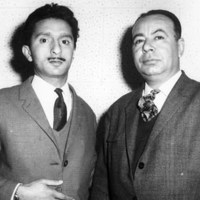
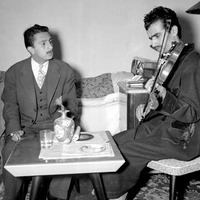
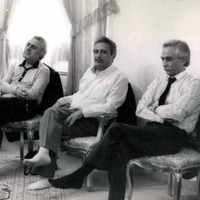
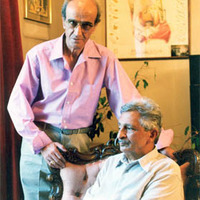
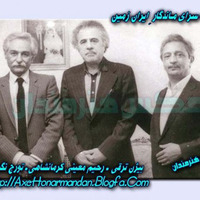
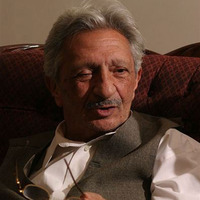
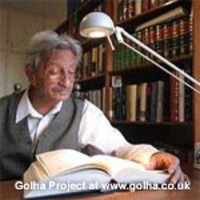
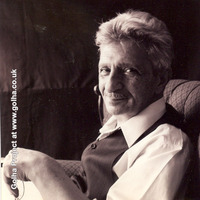
 In association with The Iran Heritage Foundation © All rights reserved 2025. Jane Lewisohn | Website by
In association with The Iran Heritage Foundation © All rights reserved 2025. Jane Lewisohn | Website by